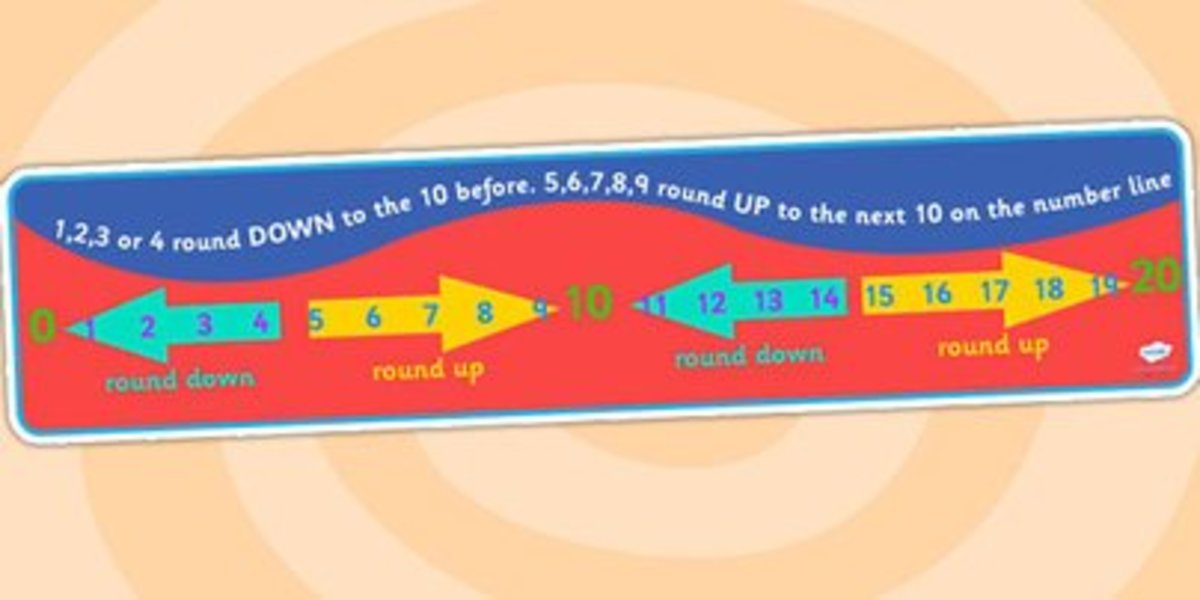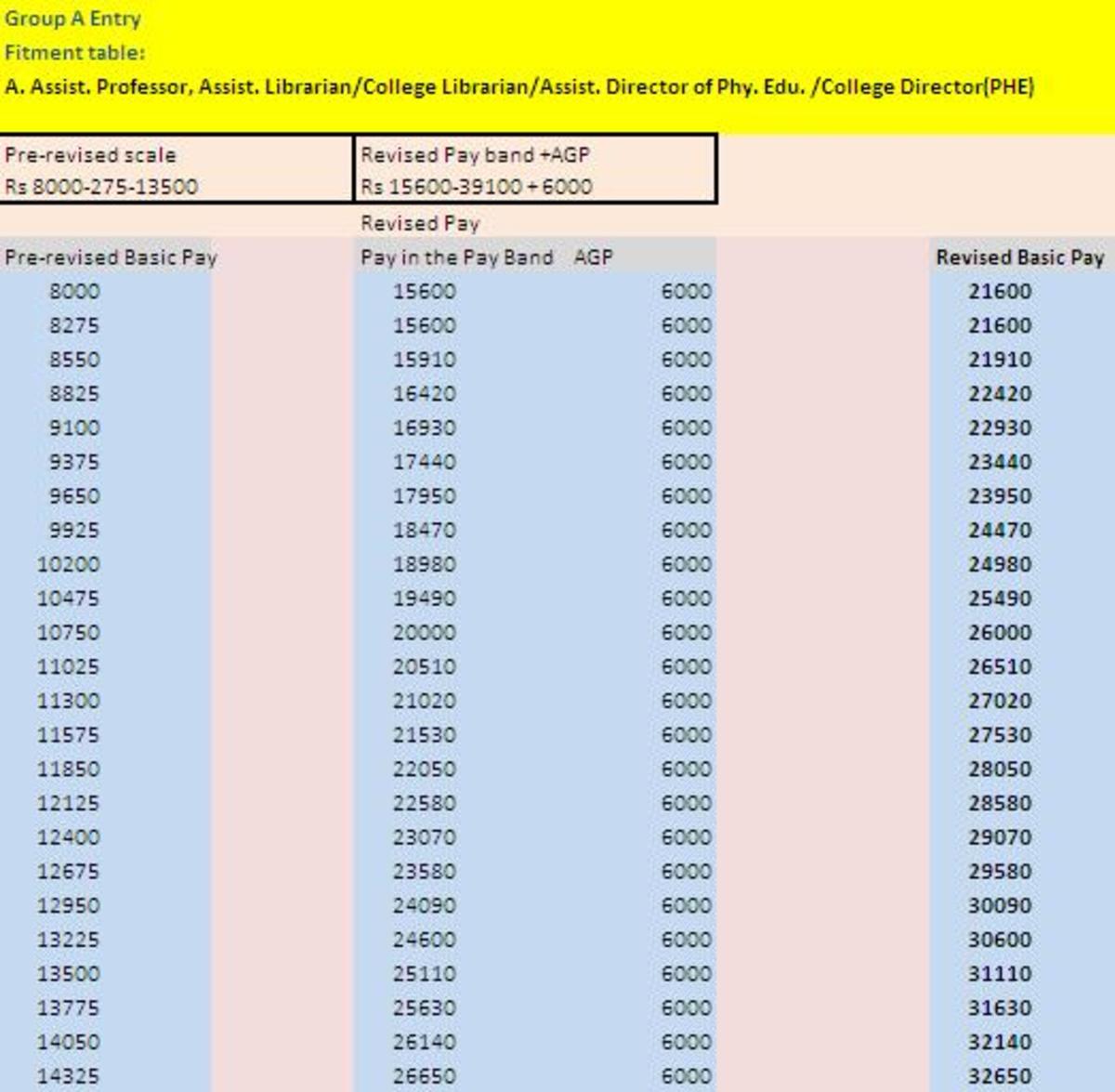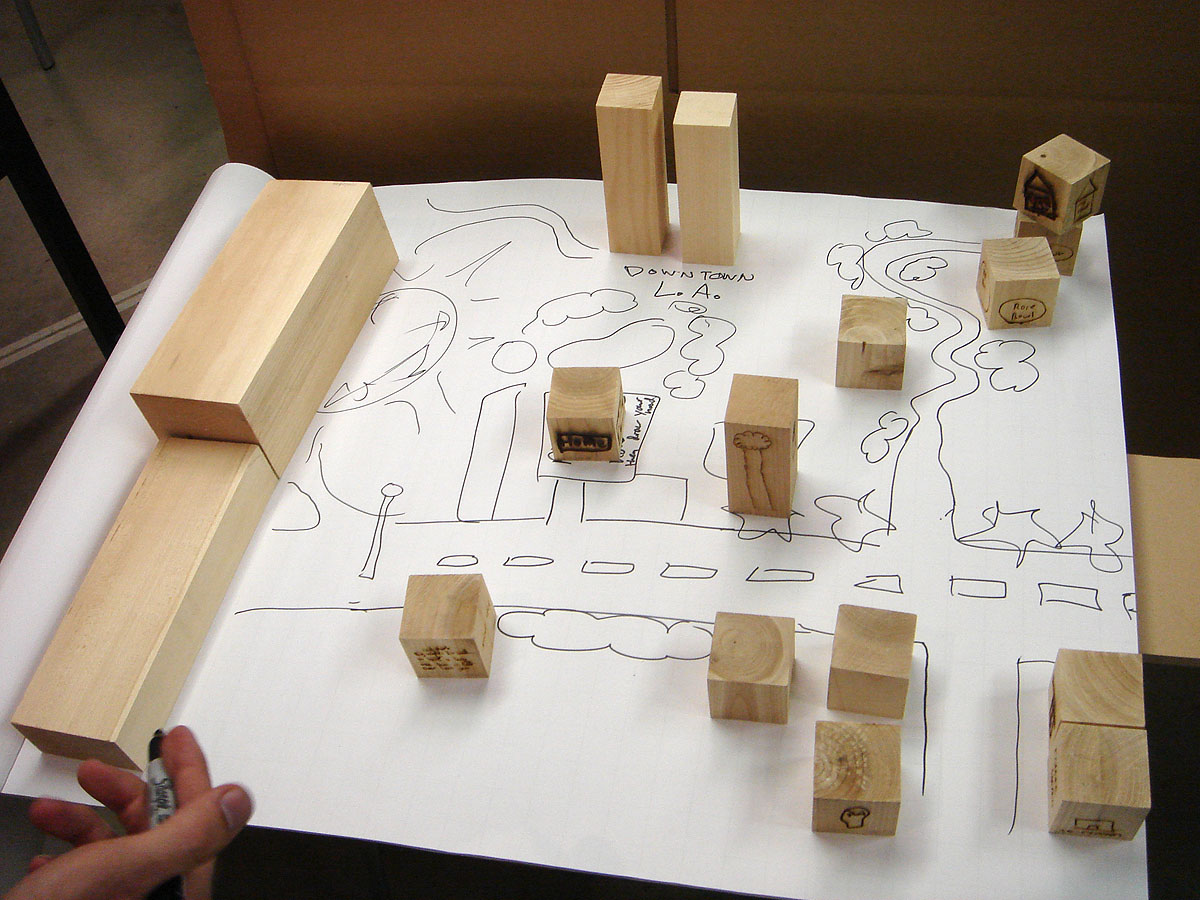Maths Mental starter ideas that are quick and easy to set up and use.
What is this hub about?
I am sure you have a set number of mental maths starters that you use within your lessons. This hub is to try to extend those games you play with some easy to use internet games which require no set up time, and will only need the children to get whiteboards and pens out, which you will already have in your classroom. I will also include some of my favourite games or activities that are easy to set up and requires little effort on your part.
I experimented with a lot of ideas for mental maths starters, some of which worked really well but if I spend an hour making the resources and it is over in five minutes I did ask myself if it was worth my time and effort. Yes they have to capture our students but I want ideas that are simple to set up.
What do we want to achieve from a mental maths starts?
- Revision of past learning. It is good practice to revisit past learning, but lets face it, it should not be a full lesson. The idea is to push these students on so to revisit past learning in small slots to help these students to have it fresh in their mind is a good thing. That way when you do come to do another lesson on the idea/topic then you can push them on instead of a plain revision lesson of the things they have forgotten. Maths uses a spiral curriculum with this very idea in mind. I do find that a lot of children do forget past learning though, because it has been such a long time since they visited it last. If you spend time to do this through mental maths starters then you are revisiting it often so that shouldn't be a problem.
- Setting your students up for their maths lesson. Maths is a very different animal to every other lesson we teach. I consider it to be teaching another language. It is also a very logical subject so students will need time to adapt to this very different set of thinking. Lets think of it from their prospective - They have either come to school, from rushing around in the morning so they won't be late for your lesson, or they have just come in from break, rushing around playing with their friends. So, in either case students minds will be on more creative persuits. A mental maths starter lets their minds focus on the task ahead of them in a fun way and little pressure. Something I think most students need, even those gifted in maths. I taught a top set maths group in year 6, all achieving a level 5 that year which I am extremly proud of them, but a lot of them said their favourite part of my maths lessons was the starter.
Do we need to do a mental maths starter on the topic we are teaching in maths that day?
- I would answer that question no. In fact I tend to do the exact opposite. When I plan for mental maths I tend to see what they have done before. There are plenty of times when you think the class could have done better at a topic/lesson. Well what I do is give them mental maths starters to help them because they are practicing that skill more so should be more confident with it.
- If a lesson is a disaster then there are ways to save it with mental maths starters. Break down the skill into sections, and use the mental maths starter to practice these broken down problems. Bring it back to basics at the starts, then discuss the skills. The next day practice a little more, then discuss the skills. etc. etc.
- I have to admit I tend to have days when I practiced certain things. Mondays were always a problem solving activity (number of the week - which I will discuss later), Wednesdays were always a timetable game/activity (because these are vital in most parts of maths and I wanted my students to know them off by heart to save time in their maths, not just know how to work it out like far too many students I come across) then the other three days were given to revision of past learning, or it could be an activity that is coming up soon which I want to know where I can push them on or simply keep the skill fresh in their minds.
You will notice that children have favourites and they look forward to doing certain games in these lessons. Plenty of my classes have enjoyed bingo, maybe because they won a prize or reward at the end of it or maybe just because it left the class nice and quiet for five minutes! Others loved games like fizz buzz (again I will explain later) but there are plenty of games/activities for you to try out and I know your class will love lots of them.
A few examples of what you can do.
Below are examples of the mental maths I have used which were really successful. I have numered them for easy reference.
1. Number of the week
This is essentially a problem solving activity. This was used on my Mondays lessons for two terms before I spent more time on revision exercises for the year 6 students getting them ready for their dreaded SATs.
How does it work?
It is easy to set up. What I did is use a small space on a window that was easy accessible to the students and make a display. This display is shown below. I write on the one sheet a number. Any number you can think of. A whole number, fraction, negative number etc.
To get the children understanding what they need to do, you need to give them a set of instructions like:
- On your whiteboard I want you to write as many number sentences which would have the answer of the number shown on the display.
- You should be challenging yourself to come up with the most complicated maths you can think of. Try and remember some of the maths we have looked at this year and use that to come up with your number sentences.
- At the end of the week I will tell you who the winner is. The winner will be the person who has come up with the best maths, the most creative, or the most complicated.
- I will give you five minutes to write as many number sentences on your whiteboards as possible.
- Once the five minute is over I will hand you a post it note. On this post it note I need you to write the one number sentence you think is the best with your name. No name = no win!
- I will leave the post it note by the display so if you come up with some more excellent maths within the week then you can write it down and place it on there.
- I will tell you who the winner is next week before we do next weeks number of the week and I will give them their prize. (Having this done before the next competition, hopefully, will make them want it more themselves.)
As you can see, this is so easy to set up - a simple display so they have somewhere to stick their number sentences (I chose this approach so others can see their work and gain ideas for themselves). Once set up you can leave it there for as long as you want. The number is something I chose while planning the week before but this can easily be done 2 seconds before the children enter the room for their maths lesson. If it is there ready for them and you have the number of the week on a set day, then they know straight away what to do and should just get on with it. A great start to your lesson and no shouting to get them ready and calmed down. It was a real plus in one of my observations that year.
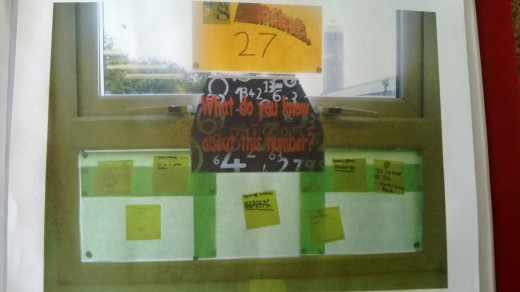
2. Fizz buzz
This is a brilliant game I picked up from a book of the same name. Have a look at it using the link below. I would recommend it. Fizz buzz is one of the better games you can use, but it has games you can use from reception all the way to year 6 and beyond.
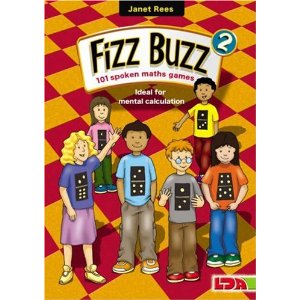
This activity is great and provides an opportunity to reinforce the students knowledge of the timetables.
How I normally set this game up:
- Explain to the class that they are going to practice their counting. This counting game though has a twist as they are going to also practive their time tables.
- Tell them that we are going to pick two sets of times tables that they would like to practice, although two that are not easy.
- Get them to stand in a circle around yourself so they can see everyone.
- Explain to them that they need to concentrate so they should be quiet and this will give them thinking time in order to get it right.
- Ask one student what timetable they would like to practice. Make sure this is someone sensible who will pick something that would benefit the group. You know what your class should be practicing to push them on so you have final say. If the child knows this before hand they are more likely to pick something that will help them. Explain to the class that when they are counting that if they come to a multilpe of this number they will say "fizz" instead of it.
i.e 2 x tables = 1, fizz, 3, fizz, 5, fizz etc.
3 x tables = 1,2, fizz, 4,5, fizz, 7,8, fizz etc.
- Ask someone else to do the same - but it has to be a different time table. The same rules apply though but this time they are going to say buzz instead of the multiple of that number.
i.e. 4 x tables = 1,2,3,buzz, 5,6,7 buzz, 9,10,11, buzz etc.
5 x tables = 1,2,3,4,buzz, 6,7,8,9, buzz etc.
- Explain that we are going to count up from 1 to, say 50. But you are going to say Fizz for any multiple of the first timetable they wanted to practice, and buzz for the second. If it is a multiple of both then you need to say "fizz buzz".
i.e. 2x and 3x = 1, "fizz", "buzz", "fizz", 5, "fizz buzz" 7, "fizz", "buzz", "fizz", 11 etc.
(I hope you can see why they have to concentrate because it does become tricky after a while as they don't hear the numbers before them.)
- I start off with a practice and, with me in the middle, point to a child who starts. Then I point to the next and they say what they need to and so on and so on.
- Any pupil getting in wrong needs to sit down and they won't win.
- The last child standing is the winner and should be rewarded.
Extra rules that can be brought in as they become more confident or older children:
- No hesitations rule. They should be given a set number of seconds to answer before they have to sit down - this is possible if the child knows their timestables and doesn't have to work them out, which after all is the aim.
- No "umms" or "erms" - we want to create confident students who can talk in numerous situations. An umm or erm shows those who are listening that they are trying to gain thinking time so therefore are not confident in what they are saying.
- If you have a student who is brilliant with their timestables and have instant recall then put them in the middle and let them lead the session. I had a few students who loved doing this and it was a competition to see who won the last fizz buzz so they could go in the middle next time.
When children are confident with their timestables then they will enjoy challenges like this. Lower ability groups don't tend to enjoy it as much as they can find it hard. But why not start them on lower timetables and work your way up?
3. 100 Club
This is another timetable activity. But like I have already said I do think that children should know their timetables very well. I had a girl who was amazing at instant recall. A lot better than I am to be honest. She was a good mathematician but the main reason she got a level 5 from her SATs is because of her timetable knowledge. It gave her a great edge on everyone else. It also gave her valuable second, minutes in some cases to work at other problems instead of working a multiplication out. For her these were very easy marks.
One reason she told me she was so good is because her old school did this challenge. They didn't set it up like I did but what ever way you do it, it is a great way for children to practice timetables quickly.
Ok, so what is it about?
- First of all you need a hundred square which only has the multiplications on. These are the side numbers. I started with a normal hundred square so they started from 1 to 10. This gave my students something to work with that they were familiar with. It also allowed them to get used to the idea of what we were doing.
- A blank 100 square should be filled out by multiplying two numbers together, the two numbers which come together when you go across one row and down one column. The answer to which should be wrote in that place.
- Just a note to say that the 100 square that is probably in your room should be covered up to do this activity, or students should be asked to sit facing away from it. Same goes to say about any timetables display you have.
- I would normally give them a time limit, say five minutes to complete as much as they could on the grid.
- Once the time had ran out then their partner would mark it - after I had given out the answers of course.
- They then hand it back and their score would be placed on the sheet.
- I would also make it a competition within the class because I would then also put these scores on a A3 sheet of paper next to their name and under week 1, week 2 etc. That way they can keep track of their own scores - and I would reward them if the score went up in front of the whole class, or have a quiet word in their ear if it went down! Plus it would generate competition between themselves as they would want to see who is doing the best, if their best friend was doing better than them etc. This I wouldn't make such a fuss of as I think it is more important to improve yourself week in week out.
Apart of their maths homework for that week was to take home their 100 square and complete it with the aid of their parents. This way they should be more prepared for it next week so I would expect a higher score. Plus it would have the added insentive that the more they do in class the less homework they had.
How do I challenge my students after they have understood this and doing well?
There are a numerous ways in which you can extend your students learning from this one. Here are a few examples:
- Instead of doing timetables 1-10 then take out the easy timestables and insert more difficult ones. For example you could do 3-12 timetables within your grid.
- Mix the numbers up so it is not as easy and they have to truly understand their timetables. An example of one is given below. This is the aim for where you want your class by the end. A model of how they should complete it should be given - i.e. tackle the easy times tables first like 5x and don't just go from left to right. And make sure you do that from top to bottom with the easy timetable and from left to right with that same timetables. I have noticed a lot of students work out say 6x5 as this is the first 5x table they come to by counting on with their fingers, and then the next one being 4x5 and they have to start at the beginning again. Teach them to find the 3,4or 5 times first and work their way through it instead of tackling each one in the random order it is on the page.
- There is of course shortening or lengthening the time to complete it.
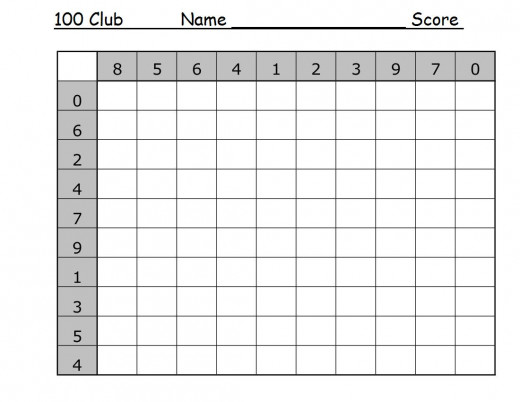
4. Timed times tables
The idea is simple here. On the interactive whiteboard you have a set of random time tables. I usually had 10 but more can be used.
To add to the competitive edge I also used a part of the wall I had spare in the class which was visible to the children and they would use this to put up their times. The competition was to beat your score from last week and if they did they got a reward. Anyway beating their score and overtaking someone elses score got an even bigger reward. The top three on the board after a term got rewarded too. Then it would all start again the next term.
So how does it work?
- On their whiteboards the students should answer the questions. I usually got them to write out the number of the questions first before revealing the questions themselves and then they could answer them as quick as they could. I didn't expect them to re-write the question as they don't learn anything by copying.
- Once all 10 had been complete they should shout out stop. Your job as a teacher would be to time them. When someone says stop then you should tell them the time it has took them to complete it. They then write this down on their whiteboard until everyone has finished.
- If they had beat their previous score I would hand them a piece of paper in which they could then write down this time and put it on the display.
- The top score the girl got who I have previously mentioned was 12 seconds to answer 10 random questions. This was no fluke as her time was usually this fast. I won't take credit for how brilliant she was at her times tables, it was down to her regulary doing a 100 club type activity in her old school. (She was new in year 6 to my school).
That was four really easy and fun mental maths starters you can do tomorrow
I do concentrate a lot on timetables as you have seen from the mental maths starters which are my favourites. However there are plenty of times where you need other types of starter. Here I either use the book fizz buzz as mentioned or I rely on the internet. There are so many wonderful maths games to help you there that you would be a fool to dismiss it.
So what can the internet offer us?
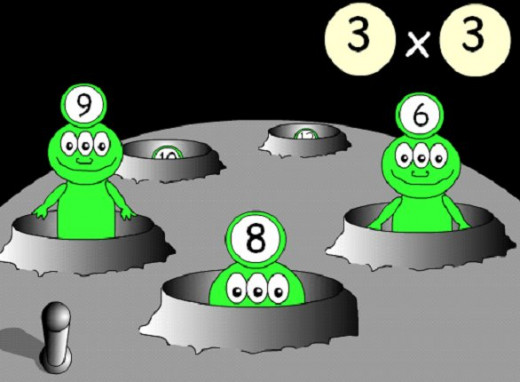
1. I'm going to start with a timestables game - moon maths
- http://www.primaryinteractive.co.uk/online/moonmaths.swf
Hitting aliens on the head, what kid wouldn't want to play this game. The fact that it all relates to timestables is a bonus for us.
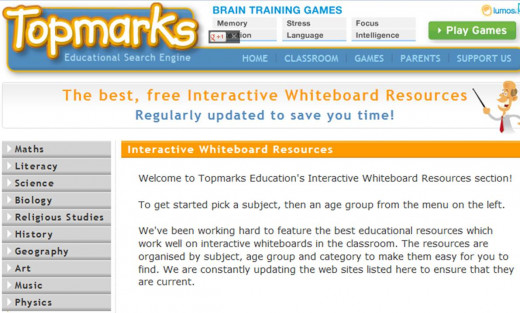
2. A great site for games - Top marks. I have used it to search for bingo games and loads came up.
- Topmarks Education: teaching resources, interactive resources, worksheets, homework, exam and revisi
Searchable site of thousands of quality teaching resources, interactive resources, homework, exam and revision help. Useful for teachers, pupils and parents.
Bingo games add in a touch of competetiveness into your lessons. Add the element of maths knowledge into it and it can be real fun for the kids.
Topmarks makes bingo so easy for you. Children need to pick any five numbers from those shown on the screen, write them down on a whiteboard and your ready to start. No need to sort and print out a different bingo board for each child (a lot of effort for a one/two mintute game!).
The computer randomly picks the questions for the children to answer - if they have the answer on their whiteboard then they simply cross it off. It does tell them the answer when you move onto the next question but a bit of thinking time is always good.
The player who can cross off all five answers is the winner. He/she should then be rewarded somehow.
Topmarks offers bingo games on:
- multiplication/division facts
- co-ordinates
- fractions
- fractions of numbers
- place value
- remainders
- addition and subtraction
- reading scales
- rounding
- doubles
3. Post sorting calculations - great for younger students
- Maths - Post Sorting Calculations - Topmarks
A number of post boxes where the children have to sort number facts. Look at the calculation on each letter and post it in the correct box.
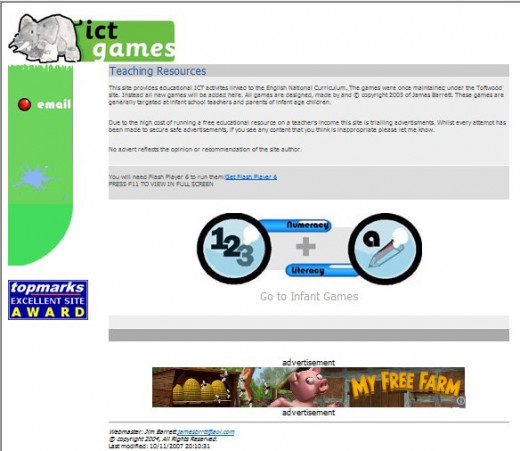
4. ICT games - a great website for younger mathmaticians
- ict games
A great website full with simple maths games for younger students. Choose a theme and pick a game. It is great because it gives you an objective and a year it is aimed at next to each game.
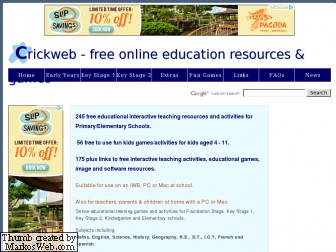
5. Crickweb lots and lots of interactive games for primary schools
- Crickweb | Welcome to Crickweb
Free Interactive Primary or Elementary Key Stage 1 and Key Stage 2 Numeracy, Maths, Literacy, English, Science, Religious Education, Geography, Design Technology, Spanish, French and History teaching resources and kids fun games.
Just a few ideas for mental maths starters
So I have given you a few ideas for some good starters. There are plenty more that I have used, a quick search on the internet and you can find all sorts. I have given you some great sites that I use all the time though and they should keep you going for a long time.
I suggest you bring in a competitive edge to these starters and the children will get a lot more out of them.




